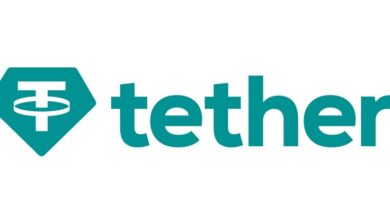Bitcoin ETFs and Grayscale: Exploring the Impact on Cryptocurrency’s Future

The introduction of Bitcoin ETFs in 2024 marked a transformative moment in the cryptocurrency landscape, signifying a significant shift in how investors engage with the world’s pioneering digital asset. This pivotal development raises crucial questions about the substantial impact that ETFs could have on Bitcoin’s future trajectory. However, as these investment vehicles make bold strides, potential challenges and debates surrounding their influence on Bitcoin’s future emerge as complex issues. A recent case in point is the noteworthy influence of Grayscale’s strategic movements and selling activities, emphasizing the dynamic role ETFs play in shaping the future of Bitcoin.
Grayscale’s Early Entry
In a distinctive position, the Grayscale Bitcoin Trust Fund stands out as the only fund with 619,162 BTC from its inception. A significant move occurred in January 2024 when Grayscale transformed its flagship product, the Grayscale Bitcoin Trust (GBTC), into a spot Bitcoin ETF. Formerly a closed-end investment trust, GBTC’s conversion to an ETF allows for continuous creation and redemption of shares based on investor demand, aligning it with traditional ETF dynamics.
Market Manipulation Concerns
A Significant Challenge An overarching concern surrounding ETFs is their susceptibility to be wielded as instruments for market manipulation. Entities with substantial Bitcoin holdings through ETFs could potentially influence prices through coordinated buying and selling, impacting smaller investors and disrupting market stability. The premium/discount observed in the trading of Grayscale Bitcoin Trust (GBTC) relative to the underlying Bitcoin value exemplifies this concern, prompting questions about potential artificial manipulation.
Historical Precedents
Similar scenarios unfolded with Gold ETFs in 2012 when JPMorgan Chase settled with the SEC for manipulating gold futures contract prices, impacting various gold ETFs. Likewise, in 2008, accusations surfaced against a group of energy companies manipulating oil futures prices, potentially affecting ETFs tracking oil prices.
Miners on a Leash: How ETFs shape on Bitcoin’s Destiny
Another potential consequence of ETF dominance is the heightened control over miners. Large ETF issuers may theoretically exert pressure on miners to adopt specific practices, such as prioritizing environmentally friendly mining methods aligned with ESG goals. While this could benefit the environment, concerns arise about centralization and potential loss of autonomy for miners. Additionally, there are apprehensions about miners being incentivized to manipulate transaction fees or block rewards to favor ETF holders, impacting smaller participants. They could also use their economic power to lobby for changes to the Bitcoin protocol that benefit their interests, potentially undermining the decentralized nature of the network and its resistance to manipulation.
ESG Factors
A Two-Edged Sword for Bitcoin’s Image Environmental, Social, and Governance (ESG) considerations gain significance in the broader financial landscape, extending to the cryptocurrency market. Advocates propose integrating ESG principles into ETF investment strategies, emphasizing green-mined Bitcoin and promoting sustainable industry practices. This initiative could enhance Bitcoin’s image and attract environmentally conscious investors but may also lead to the exclusion of non-green mined Bitcoin, affecting supply and price dynamics.
Pre-ETF era, lobbying against Bitcoin with regulators faced challenges due to its status as the only decentralized digital asset. However, influencing ETFs to adopt greener funds becomes more feasible, especially as they accumulate a significant share of Bitcoin’s total supply. Now, Grayscale alone holds more than 3% of the total supply of Bitcoin!
A Nuanced Perspective
Beyond Uncertainties The potential impact of ETFs on Bitcoin’s future is intricate. While concerns about manipulation, control, and ESG factors are valid, counterbalancing forces must be considered. The Bitcoin community’s resistance to centralization and its decentralized nature pose inherent obstacles to absolute control attempts. Moreover, heightened transparency and regulatory scrutiny can help alleviate manipulation risks.
Uncharted Territory: Bitcoin and ETFs
The narrative of Bitcoin and ETFs unfolds in uncharted territory. Amid challenges, there exists potential for positive change. As the industry evolves and regulations adapt, the true impact of ETFs on Bitcoin’s future will evolve through an interplay of market forces, technological advancements, and active participation from the cryptocurrency community. Importantly, retail investors are encouraged to retain their Bitcoin holdings, minimizing exposure to ETFs where possible.





